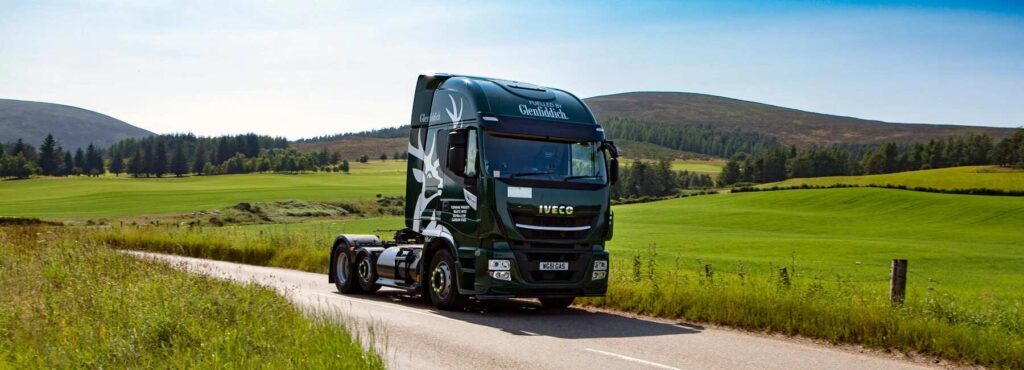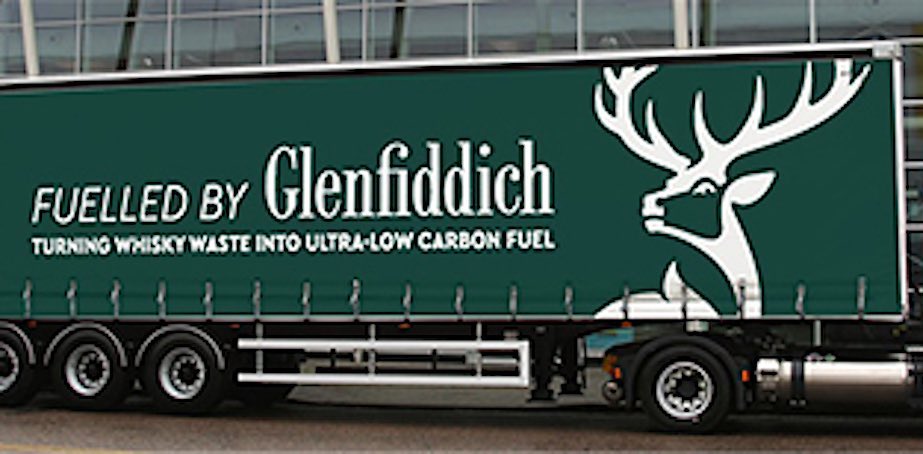
Drinking and driving don’t mix when the alcohol is inside the driver, but what if the leftover dregs from a whiskey distillery could replace the fuel inside the tank?
Whiskey is a potent potable that’s fueled many things—rebellion, imagination, and some pretty epic hangovers. Now, it is powering the huge tractor-trailer trucks that deliver the Glenfiddich Scotch itself.
A fleet of low-carbon trucks powered by biomethane will be soon carrying Scotland’s iconic whiskey, thanks to a partnership between Glenfiddich and a sustainable transportation company.
According to the company, IVECO, their natural process is simple: Distillery waste materials are run through an anaerobic digester.
As they break down, gases are emitted and harvested. After a final cleaning process, the resulting product is a low-carbon, low-particulate biofuel.
“It has taken more than a decade for Glenfiddich to become the first distillery to process 100% of its waste residues on its own site, then to be the first to process those residues into biogas fuels to power its trucks, and finally to be the first to install a biogas truck fueling station,” said Kirsty Dagnan, from the distillery’s Dufftown facility, in a statement.

It’s estimated that every green and white “Fuelled by Glenfiddich” truck on the road will displace up to 250 tons of CO2 every year.
MORE: Build With Compost: Researchers Turn Food Scraps Into Materials Stronger Than Concrete
In addition to producing eco-friendly petrol, the distillery is using the leftover solids from the fuel processing as fertilizer in the fields used to grow barley, the main ingredient in whiskey.
As an added bonus, not only do these twice-over leftovers enrich the soil, they actually draw CO2 away from the atmosphere.
According to figures forecast by Glenfiddich’s parent company, William Grant & Sons, when compared to diesel and other fossil fuel alternatives, their innovative “closed-loop system” is set to cut annual greenhouse gas emissions by up to 99%—an equivalent environmental impact of planting 4,000 trees every year.
RELATED: New Tech Makes Perishable Food Last For Months Without a Fridge, Helping Farmers and the Planet
That deserves a toast!
DON’T Waste This Wee Dram of Good News—Share It With Pals…




















